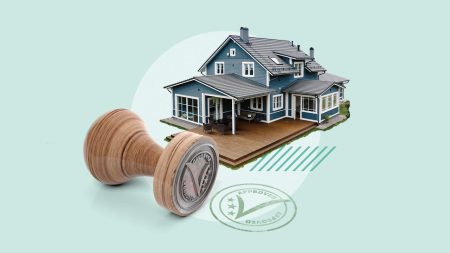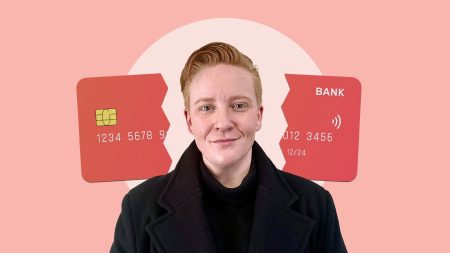Radius Images/Getty Images
Key takeaways
- Mortgage closing costs are the fees associated with buying a home, most which you must pay on closing day.
- Closing costs typically range from 2 to 5 percent of the total loan amount, and they include fees for the appraisal, title insurance and origination of the loan.
- There are ways to lower your closing costs, such as negotiating seller concessions and shopping around for service providers.
When you purchase a home, your down payment isn’t the only upfront cost. You’ll also pay a series of costs related to your loan, called mortgage closing costs, which are due on closing day. These can really add up, but you may be able to reduce them. Here’s what you need to know about mortgage closing costs.
What are closing costs?
The closing costs for a mortgage include all of the expenses related to applying for the loan and finalizing a real estate sale. Some of the costs are related to the property, while others are related to the mortgage lender’s services and the paperwork involved in the transaction.
With home sales, both buyers and sellers typically pay closing costs. The closing costs paid by sellers are usually deducted from the sale proceeds. Buyers often pay their portion out of pocket.
How much are closing costs?
Mortgage closing costs are typically about 2 to 5 percent of your total loan amount.
The tab for your closing costs depends on three key factors:
- The price of the home
- The home’s location
- Whether you’re buying or refinancing
For 2021, the latest year available, the average closing costs for buying a single-family home were $6,905, according to the real estate data firm ClosingCorp. The average closing costs for a refinance came in at $2,375.
However, those costs vary widely across the country, partly due to state and local tax laws. For example, in the survey, homebuyers in Washington, D.C. paid the highest average closing costs for purchase, at $29,888. Delaware and New York came in second and third, respectively, with average closing costs of more than $16,000. The states with the lowest average closing costs were Missouri ($2,061), Indiana ($2,200) and Nebraska ($2,210).
How to learn your closing costs
Before you close on the home, you’ll receive a mortgage loan estimate, which is a document outlining your mortgage terms and expenses. Some of these expenses are fixed, but the document will specify services you can comparison shop, like title insurance. At least three business days before the closing, you’ll receive a closing disclosure. This is a similar document that lists the final closing costs.
What is included in closing costs?
Whether paid by the homebuyer or seller, closing costs will likely include:
- Appraisal fee: This fee pays a licensed appraiser to determine what the home is worth. The average appraisal fee for a single-family home is about $350, according to Angi. While this is considered a “closing” cost, you typically pay it well before closing day.
- Attorney fee: You may choose to use an attorney during your closing, or your state may require one.
- Credit check fee
- Discount points: To lower the interest rate on your mortgage, you might also opt to pay mortgage points or discount points. You’ll usually pay 1 percent of the loan principal for one point off the interest rate, which is often equal to a 0.25 percent rate reduction.
- Origination fee: Lenders can charge an origination fee for creating the loan, which is generally 0.5 percent to 1 percent of the amount you’re borrowing. This fee might include other costs, such as the application fee and the underwriting fee.
- Per-diem interest: The per-diem interest rate on a mortgage is the daily interest that’s charged between the closing date and the start of the billing cycle.
- Prepaid homeowners insurance premiums, mortgage insurance premiums, property taxes and homeowners association (HOA) fees
- Property survey fee: Your lender may require this to confirm that your property boundaries match the title. The cost depends on the size of the property, the type of survey and your location.
- Real estate agent commissions: The buyer’s agent and the seller’s agent typically split a commission of about 5 percent of the sale price.
- Recording fee: This fee goes to a government agency that records the real estate transaction and makes it public record. It’s often around $125.
- Title insurance policy: Lenders require borrowers to obtain title insurance in case there are issues with ownership after the sale. This policy protects the lender, and the cost is usually about 0.50 percent of the amount of the mortgage. You may also buy your own title insurance for an additional cost.
- Title search fee: Unless you’re buying a brand-new home, your lender will have a title company search property records to ensure there aren’t any issues with the title of the home, such as a tax lien. The fee for a title search is around $200.
- Transfer tax: Many states impose a transfer tax when real estate changes hands. Often, the seller pays this tax, but in some places, it’s shared by the buyer.
Who pays closing costs?
The buyer pays most closing costs, but the seller pays some, too. As the buyer, you might try to negotiate with the seller to cover some of your costs — called “seller concessions” — but that’s only feasible if the seller doesn’t have other offers.
Closing costs paid by the buyer
- Appraisal fee
- Attorney fees
- Credit check fee
- Discount points
- Home inspections: Like the appraisal fee, the fees for any inspections you choose may be considered a closing cost, but you often pay for them before closing.
- Origination fee
- Per-diem interest
- Prepaid insurance premiums
- Property survey fee
- Recording fee
- Title insurance
- Title search
Closing costs paid by the seller
Often, the seller covers the transfer tax — though not always. The seller also pays some of the same fees buyers do, such as an attorney’s fee and prorated property taxes.
Who pays Realtor commissions?
In the wake of a 2024 settlement, sellers might not be responsible for covering Realtor commissions, both for their selling agent and the agent representing the buyer. Buyers might now need to cover the fees for their own agent, however, this will vary by case.
How to lower your closing costs
While you can’t avoid paying all mortgage closing costs, there are ways to lower the amount you pay. Here are a few tips:
- Look for lenders that offer discounts: Consider working with a mortgage lender that doesn’t charge an origination fee or that’ll offer you a discount. If you’re getting your mortgage at your bank, you can also try asking for a discount or fee waiver, since you’re already a customer.
- Apply for down payment assistance: Particularly if you’re a first-time homebuyer, explore down payment assistance and grants that can help cover closing costs.
- Use a no-closing-cost loan: Look into a no-closing-cost mortgage — but don’t let the name fool you. You’ll still “pay” the closing costs by financing them with the mortgage (and paying interest on them) or paying a slightly higher interest rate.
- Negotiate seller concessions. To spur a sale, a seller might agree to pay a portion of your costs. There are limits on the amount of seller concessions you can receive, depending on your loan. You may receive up to 9 percent of the purchase price or appraised value, whichever is lower, with a conventional loan. FHA loans and USDA loans allow for up to 6 percent, while VA loans have a maximum of 4 percent total. Jumbo loans vary based on the lender.
- Shop around when possible: You’re allowed to shop for certain closing costs, like title insurance, title searches and home appraisals. Taking advantage of this can help you reduce your closing costs.
FAQ
Read the full article here









